Introduction to Showa Women's University
Overview
Showa Women's University is a private women's university located in Tokyo, Japan. It was founded in 1920 and its predecessor was Showa High School for Girls, which was founded in 1912. The school aims to cultivate female talents with international vision and humanistic qualities, and emphasizes the development of personality and the improvement of comprehensive quality. Showa Women's University has multiple faculties and graduate schools covering humanities, social sciences, education, art and other fields.
Campus
The main campus of Showa Women's University is located in Setagaya District, Tokyo. The specific address is as follows:
Address: 3-1-1 Sakurashinmachi, Setagaya District, Tokyo
Tel: +81-3-3411-1111
Educational Philosophy
Showa Women's University adheres to the educational philosophy of "freedom and creation" (freedom and creation), emphasizing the cultivation of students' independent thinking ability and creativity. The school is committed to cultivating high-quality talents with professional knowledge and practical ability through a comprehensive education system, and contributing to the development of society.
Disciplines and Majors
Showa Women's University has several faculties and graduate schools covering a wide range of fields:
Faculty of Human Sciences
Department of Life Sciences: Learn the basic theories and practical methods of life sciences and cultivate professionals who can work in the fields of family, community, education, etc.
Department of Psychology: Learn the basic theories and practical methods of psychology and cultivate professionals who can work in the fields of psychological counseling, education, research, etc.
Department of Social Welfare: Learn the basic theories and practical methods of social welfare and cultivate professionals who can work in the fields of social welfare and community services.
Faculty of Literature
Department of Japanese Literature: Learn the basic theories and practical methods of Japanese language and literature and cultivate professionals who can work in the fields of education, culture, and media.
Department of English and American Literature: Learn the basic theories and practical methods of English language and literature and cultivate professionals who can work in the fields of international exchange, translation, and education.
Department of International Relations: Learn the basic theories and practical methods of international relations and cultivate professionals who can work in the fields of diplomacy, international organizations, and non-governmental organizations.
Faculty of Education
Department of Early Childhood Education: Learn the basic theories and practical methods of early childhood education and cultivate professionals who can work in the fields of kindergartens and nurseries.
School Education: Learn the basic theories and practical methods of school education, and cultivate professionals who can work in primary and secondary schools, special education and other fields.
Department of Life and Environment
Environmental Design: Learn the basic theories and practical methods of environmental design, and cultivate professionals who can work in architectural design, urban planning and other fields.
Food Culture: Learn the basic theories and practical methods of food science and food culture, and cultivate professionals who can work in the food industry, catering management and other fields.
Graduate School
Graduate School of Human Sciences
Major in Life Sciences: Master's Course
Major in Psychology: Master's Course
Major in Social Welfare: Master's Course
Graduate School of Letters
Major in Japanese Literature: Master's Course
Major in English and American Literature: Master's Course
Major in International Relations: Master's Course
Graduate School of Education
Major in Early Childhood Education: Master's Course
Major in School Education: Master's Course
Graduate School of Living and Environmental Studies
Major in Environmental Design: Master's Course
Major in Food Culture: Master's Course
Specialized Courses
Department of Life Sciences: Learn the basic theories and practical methods of life sciences, including home economics, nutrition, life design, etc.
Department of Psychology: Learn the basic theories and practical methods of psychology, including clinical psychology, developmental psychology, social psychology, etc.
Department of Social Welfare: Learn the basic theories and practical methods of social welfare, including social work, community service, elderly care, etc.
Department of Japanese Literature: Learn the basic theories and practical methods of Japanese language and literature, including classical literature, modern literature, literary criticism, etc.
English and American Literature: Learn the basic theories and practical methods of English language and literature, including British literature, American literature, translation, etc.
International Relations: Learn the basic theories and practical methods of international relations, including international politics, international economics, international law, etc.
Children's Education: Learn the basic theories and practical methods of early childhood education, including child psychology, educational methods, childcare practice, etc.
School Education: Learn the basic theories and practical methods of school education, including educational principles, teaching methods, special education, etc.
Environmental Design: Learn the basic theories and practical methods of environmental design, including architectural design, urban planning, landscape design, etc.
Food Culture: Learn the basic theories and practical methods of food science and food culture, including food processing, food safety, food culture, etc.
Practical Teaching
Showa Women's University focuses on practical teaching, has advanced laboratories and practice bases, and provides students with rich practical teaching resources. The school has established cooperative relationships with many companies and educational institutions, providing students with rich internship and practice opportunities. The school also has simulation classrooms, laboratories, studios and other practice platforms, providing students with a platform for practical operation.
International Exchange
Showa Women's University actively participates in international exchange programs and has established cooperative relations with universities in many countries to provide students with opportunities for overseas study and exchange. The school has an international student office to provide comprehensive support and services for international students.
Ranking
Showa Women's University has a high reputation in many fields, especially in the fields of humanities, social sciences, education and other fields. The school has performed well in terms of employment rate and has been rated as one of the universities with higher employment rates among private women's universities in Japan many times.
Cost
Admission fee: about 200,000 yen
Tuition fee:
About 800,000 to 1 million yen per year (depending on different departments and subjects)
The specific cost may change, it is recommended to consult the school directly for the latest information.
Campus
Showa Women's University has a beautiful campus environment and complete facilities, including modern teaching buildings, laboratories, libraries and sports facilities. The school also has student dormitories to provide convenient living conditions for out-of-town students.
Contact Information
Tel: +81-3-3411-1111
Fax: +81-3-3411-1112
Email: info@showa-u.ac.jp
Other Information
Internship Opportunities: The school has established cooperative relationships with many companies and educational institutions, providing students with abundant internship and practice opportunities.
Employment Support: The school has a career guidance center to provide students with employment consultation, resume writing guidance, interview skills training and other services to help students find employment smoothly.
Scholarship System: The school has a variety of scholarship systems to help students reduce their financial burden.
-

The University of Tokyo
-
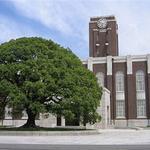
Kyoto University
-
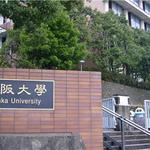
Osaka University
-

Waseda University
-
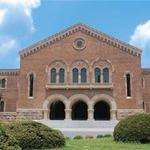
Hitotsubashi University
-

Nagoya University
-
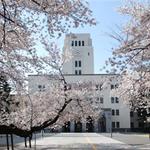
Tokyo Institute of Technology
-
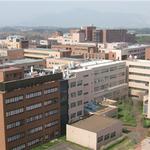
University of Tsukuba
-

Keio University
-
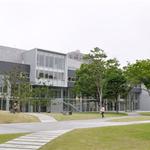
Tohoku University
-

Mesoamerican University
-

Istmo University
-

Mariano Galvez University of Guatemala
-

Regional University of Guatemala
-

Galileo University
-

Francisco Marroquín University
-

Rafael Landívar University
-

University of the Valley of Guatemala
-

University of San Carlos of Guatemala
-

Technological Institute of Tlaxcala Plateau
-

Golfo University
-

Technological University of South Sonora
-

Technological University of Huejotzingo
-

Tizimín Institute of Technology
-

Chilpancingo Institute of Technology

